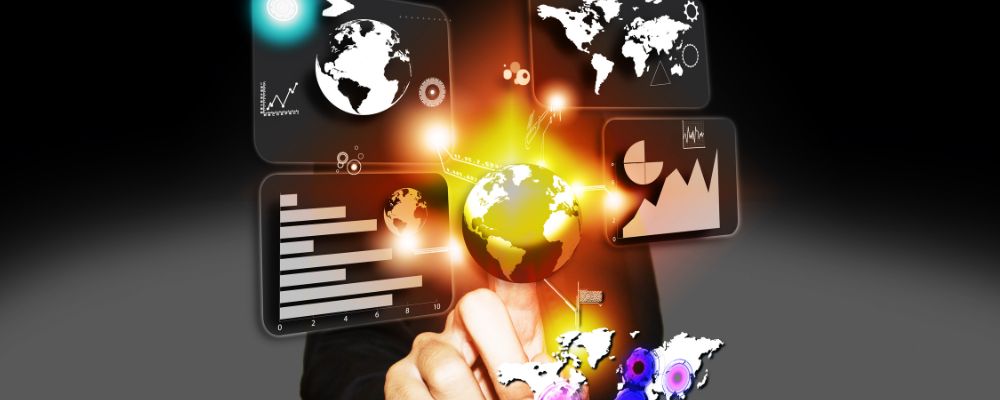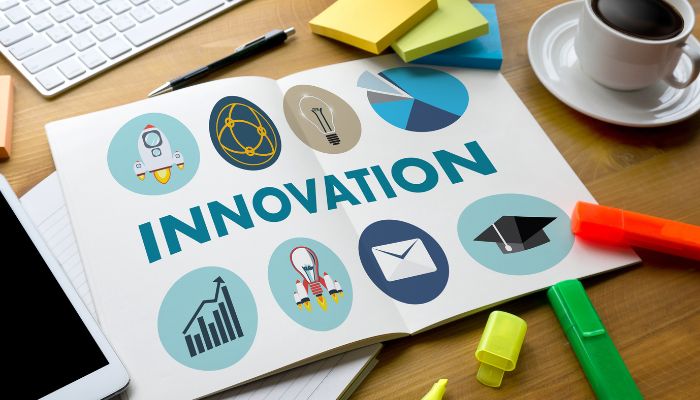
1. The Importance of Technology in Modern Society
Technology has fundamentally changed the fabric of society by making information more accessible, communication faster, and systems more efficient. Here are a few ways it has influenced various aspects of our lives:
- Connectivity: The advent of the internet and mobile devices has made the world more connected than ever. Social media platforms, video conferencing, and messaging apps have changed how we communicate personally and professionally.
- Access to Information: Search engines and digital libraries have democratized information, allowing people to access vast amounts of knowledge with a few clicks.
- Automation and Efficiency: In industries such as manufacturing, finance, and healthcare, automation has streamlined processes, reduced costs, and increased output.
2. Innovation: The Catalyst for Progress
Innovation is more than just creating new products or services; it’s about improving processes, optimizing performance, and solving problems in novel ways. Innovation can happen through the development of cutting-edge technologies or by applying existing technologies in innovative ways. The most successful innovations often result in disruptive changes that reshape industries and consumer behavior.
- Disruptive Innovation: Companies like Uber, Airbnb, and Netflix have disrupted traditional industries (transportation, hospitality, and entertainment) by offering more efficient and customer-centric alternatives.
- Incremental Innovation: Many companies focus on gradual improvements, like making products more user-friendly or enhancing functionality, which can lead to increased customer satisfaction and competitiveness.
3. Key Technological Innovations Shaping the Future
Several emerging technologies are transforming industries and have the potential to drive future innovation:
- Artificial Intelligence (AI) and Machine Learning (ML): AI and ML are enhancing automation, improving decision-making, and enabling personalized experiences across sectors such as healthcare, finance, and e-commerce.
- Internet of Things (IoT): IoT connects devices, enabling them to collect and exchange data. This connectivity is driving the development of smart homes, cities, and industries that operate more efficiently.
- Blockchain: Originally developed for cryptocurrencies, blockchain technology is being used to secure transactions, improve transparency, and reduce fraud in industries like finance, supply chain management, and healthcare.
- Renewable Energy and Sustainability Tech: Innovations in renewable energy sources (solar, wind) and energy storage are driving the global shift toward sustainability and reducing the reliance on fossil fuels.
4. Impact of Technology on Key Sectors
Technology and innovation have led to groundbreaking advancements in various industries, bringing both opportunities and challenges.
- Healthcare: Innovations in telemedicine, AI diagnostics, wearable devices, and gene editing (e.g., CRISPR) are transforming healthcare delivery, improving patient outcomes, and increasing accessibility.
- Education: The rise of e-learning platforms and virtual classrooms has democratized education, allowing students to learn from anywhere in the world. AI-driven personalized learning tools are further enhancing the learning experience.
- Finance (Fintech): The fintech industry is leveraging AI, blockchain, and mobile technologies to offer more accessible financial services, enabling online banking, peer-to-peer lending, and mobile payments.
- Transportation: Autonomous vehicles, electric cars, and ride-sharing platforms are transforming the transportation sector, making it safer, more sustainable, and more efficient.
- Agriculture: Precision farming, powered by IoT, drones, and AI, is revolutionizing agriculture by enabling farmers to monitor crops more efficiently, reduce waste, and increase yields.
5. The Role of Innovation in Economic Growth
Innovation is critical for driving economic growth and competitiveness. Companies that innovate are more likely to grow, attract investment, and create jobs. Countries that foster innovation through investment in education, research, and infrastructure tend to have stronger economies and higher living standards.
- Startups and Entrepreneurship: The rise of technology startups, particularly in sectors like AI, biotechnology, and fintech, has fueled job creation and contributed to economic development globally.
- Global Competitiveness: Nations with strong innovation ecosystems, such as the United States, South Korea, and Germany, are often at the forefront of technological breakthroughs that influence the global economy.
6. Challenges of Rapid Technological Change
While technology and innovation offer numerous benefits, they also present challenges that societies must address.
- Job Displacement: Automation and AI are expected to displace some jobs, particularly in industries like manufacturing and logistics. Workers will need to upskill or retrain to adapt to the evolving job market.
- Privacy and Security: As more devices become interconnected, the risk of cyberattacks and data breaches increases, requiring robust cybersecurity measures.
- Digital Divide: Despite widespread technological advancement, there are still significant disparities in access to technology, particularly in developing regions. Bridging the digital divide is essential for ensuring that the benefits of innovation are shared equitably.
7. The Future of Technology and Innovation
The future of technology and innovation is filled with exciting possibilities. As AI, quantum computing, biotechnology, and other advanced fields continue to develop, we can expect:
- Smarter Cities and Infrastructure: The integration of IoT and AI could lead to the creation of "smart cities" that optimize energy usage, transportation, and public services for maximum efficiency.
- Advancements in Space Exploration: With private companies like SpaceX pushing the boundaries of space exploration, the next decade could see innovations that make space travel more accessible and open new avenues for scientific discovery.
- Human Augmentation: Technologies such as AI-driven prosthetics, brain-computer interfaces, and gene editing could enhance human capabilities, offering new solutions to health challenges and even extending human lifespan.
